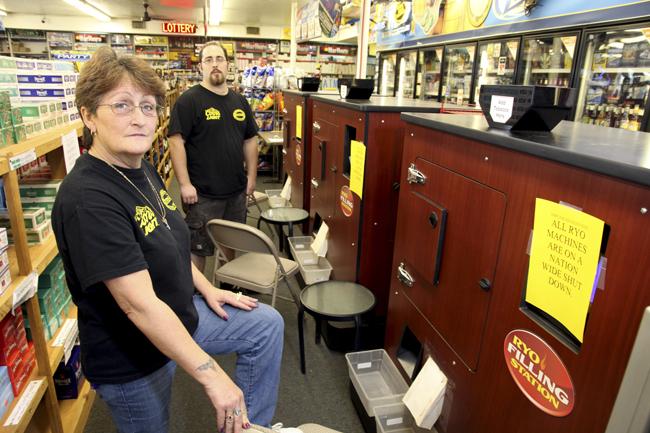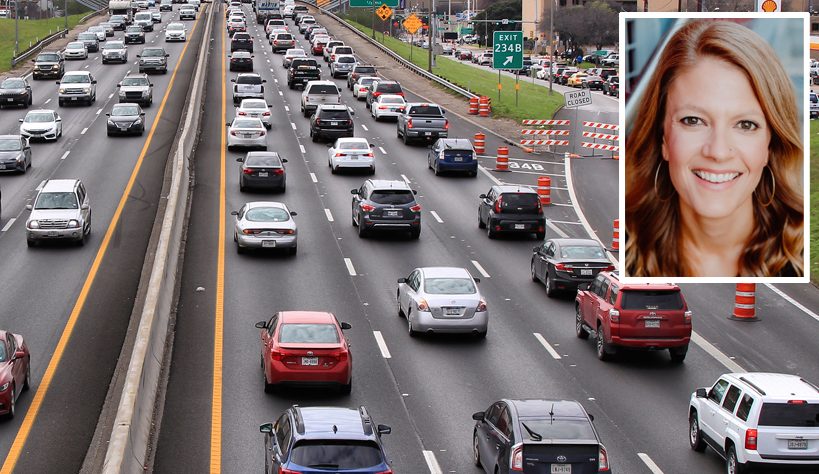UPDATE: Where Did the Senate Get the Extra Money to Pay For Its Bill?
12:25 PM EDT on June 26, 2012
UPDATE: The final bill contained a $2.4 billion transfer from Leaking Underground Storage Tank Trust Fund to the Highway Trust Fund in June 2012 and three transfers from the General Fund to the Highway Trust Fund, totaling $18.8 billion. They were: $6.2 billion to the Highway Account of HTF in October 2012; $10.4 billion transfer to Highway Account of HTF in October 2013; and $2.2 billion transfer to Mass Transit Account of HTF in October 2013. They dropped the car tariffs change and the gas guzzler transfer. They replaced those smaller transfers and offsets with the pension provisions and a tiny bit from the roll-your-own-cigarettes change.
Congressional leaders announced opaquely last week that they’d “moved forward” on a deal on the highway section of the transportation bill. That means transit, rail, and safety programs are still being negotiated. And it means the financing of the bill hasn’t yet gotten the seal of approval from the House.

Still, both houses of Congress have agreed to spend more on the transportation bill than the Highway Trust Fund itself can bear. (The House gave its green light a couple weeks ago when it nixed the Broun motion to keep transportation spending to HTF receipt levels.) To overspend the HTF but still plausibly deny that they’re deficit-spending, the Senate Finance Committee has done some pretty fancy footwork to offset the expenditures with other savings.
Chair Max Baucus (D-MT) squeezed blood from the stone of the U.S. budget, and many of his colleagues have lauded him as a miracle worker. But Taxpayers for Common Sense – and lots of other people with common sense – say the numbers don’t really add up. The information below comes from TCS's report, released last week, on the Senate pay-fors.
Stick with me here – this is all a little convoluted, but understanding the funding is a key part of the process. While the Senate transportation bill may be a good stop-gap compared to the option of even shorter extensions, a look at the funding shows why it provides no long-term answers to the question of how to pay for transportation.
The sources of new Highway Trust Fund revenue Baucus et al came up with are:
A transfer from the general fund: $4.97 billion. This is the most obvious example of deficit spending – just taking money from the Treasury to pay for transportation. That’s on top of $34.5 billion the Treasury has already coughed up in the last four years to bail out the Highway Trust Fund – something no one wanted to repeat.
Dedication of imported car tariffs to the Highway Trust Fund: $4.52 billion. This revenue would no longer go to the general fund.
A transfer from the Leaking Underground Storage Tank Trust Fund: $3.685 billion. TCS approves of this use of funds, since they come from the gas tax and are underspent at a three-to-one ratio. This transfer just eliminates most of the backlogged surplus.
Dedication of the gas guzzler tax to the Highway Trust Fund: $0.697 billion. The government levies a fee on vehicles whose combined city and highway fuel economy is worse than 22.5 mpg (with exemptions, of course, for some of the worst offenders, like SUVs and minivans). It’s transportation-related, but the tax revenues have always gone into the general fund, so this functions as another transfer from the Treasury.
Total new HTF revenues: 13.872 billion.
So, since the Senate proposes to take from the general fund to plug the Highway Trust Fund, they have to pay back the Treasury somehow. That’s known on Capitol Hill as an “offset,” to avoid deficit spending.
The principal new source of revenue to replenish the general fund is a pension stabilization provision, expected to yield $9.394 billion. By reducing the amount companies have to contribute to employees’ pensions -- which are tax-free -- that money will become taxable income. Even skeptics seem to agree that $9.394 billion is probably a reasonable amount to expect from this change. But TCS notes that the Pension Benefit Guaranty Corporation (PBGC), which guarantees pension benefits when a company goes bankrupt, has a $23 billion deficit, which they say would be a better fit for this chunk of money.
There are 10 more offsets, most of them good for a negligible amount of money, but put them all together (with the pension change) and they total $17 billion. They include changes to arcane tax code provisions, increased enforcement of tax payment on Medicare providers and passport holders, and even a new tax on “roll-your-own” cigarette machines.
So that’s enough to pay the general fund back for what the Highway Trust Fund took. But TCS says some of these represent bogus savings. For example, the government is planning to “save” $3.627 billion by further delaying a tax change that hasn’t even taken effect yet. The Senate bill would spend ten years' worth of this "savings" in little more than a year.
But that’s not all! The bill also includes extraneous spending on things that don’t have anything to do with transportation. Most of the non-transportation items have their own funding built in, but TCS wonders why they’re included in the bill at all. They include $3.627 billion for Gulf states’ coastal restoration, paid for out of fines from the BP oil spill; $1.4 billion for reauthorization of the land and water conservation fund, funded with oil drilling money; a change in the definition of a “small-issuer” bond, which is tax-exempt, and therefore forfeiting $0.761 billion in taxes; elimination of the cap on water and sewer bonds; and relief from the alternative minimum tax for investors in private activity bonds (which are often used for infrastructure).
The final item under “new spending” does, in fact, deal with transportation. In fact, it’s a key priority for transportation reformers: bringing the transit tax benefit up to the level of the parking benefit for commuters. Currently, the limit is $125 a month for transit and $240 for parking.
Putting transit commuters on a level playing field with drivers is a significant transportation goal for this bill to achieve. TCS grumbles that the way to handle the imbalance is to lower the parking subsidy, which is fair enough. But if that’s not going to happen, the $0.139 billion it will cost to raise the transit benefit to achieve parity is well worth it.
All together, whew, that’s a lot of complicated math just to avoid raising the gas tax.
Stay in touch
Sign up for our free newsletter
More from Streetsblog USA
‘We Don’t Need These Highways’: Author Megan Kimble on Texas’ Ongoing Freeway Fights
...and what they have to teach other communities across America.
Should Wednesday’s Headlines 86 SUVs?
American tax law encourages people to buy the gas-guzzling and deadly vehicles, but some in Canada are pushing to ban them.
Brightline West Breaks Ground on Vegas to SoCal High-Speed Rail
Brightline West will be a 218-mile 186-mile-per-hour rail line from Vegas to Rancho Cucamonga — about 40 miles east of downtown L.A. — expected to open in 2028.
Tuesday’s Headlines Fix It First
How voters incentivize politicians to ignore infrastructure upkeep. Plus, are hydrogen trains the future of rail or a shiny distraction?
Why We Can’t End Violence on Transit With More Police
Are more cops the answer to violence against transit workers, or is it only driving societal tensions that make attacks more frequent?




